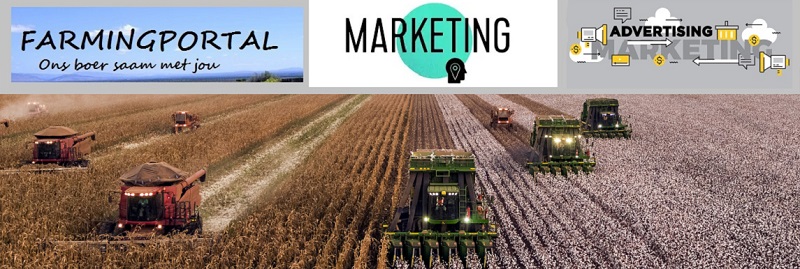This year, the National Oceanic and Atmospheric Administration released its “most aggressive hurricane season forecast on record.” And while the whole region is preparing for the storms, some communities face a particularly disgusting, dangerous risk: manure-laden floodwaters, courtesy of factory farms.
For decades, factory farms have had a free pass to pollute waters and our climate. Now, the looming threat of an intense hurricane season brings this issue into sharp relief. Factory farms make already-harrowing events like hurricanes and floods even more dangerous. We must stop this vicious cycle by moving off the factory farm model entirely, and transitioning to a more sustainable, healthier food system.
Factory Farms Are Inherently Polluting and Vulnerable to Flooding
In 2018, Hurricane Florence slammed into the North Carolina coast, flooding tens of thousands of homes — and dozens of factory farms. North Carolina is the second-biggest hog-producing and fourth-biggest poultry-producing state in the country, according to USDA data. Factory farms confine tens of millions of animals in the state’s flood-prone areas. As a result, Florence’s floodwaters carried hog and poultry waste directly into homes.
Krissy Kasserman, Factory Farm Organizing Director at Food & Water Watch, lives in North Carolina, and her family’s home was flooded by the storm. As she remembers:
“The floodwater that poured into our home in the days after Hurricane Florence was likely laden with hog urine and feces and the contaminants they contain, including deadly pathogens like E. coli and Salmonella. It soaked into our cabinets, our walls, our floors. The potential threats it posed added a huge health risk to the clean-up from an already stressful and devastating event.”
The factory farm system crams millions of animals into relatively small spaces and concentrates the huge amounts of waste they produce. In many places, including North Carolina, this waste is stored in open-air manure lagoons and sprayed onto nearby fields, ostensibly as fertilizer.
 The impact of cow methane on climate change
The impact of cow methane on climate change
But in reality, factory farms produce too much waste for fields to absorb. In North Carolina, factory-farmed hogs produce 26 billion pounds of waste a year. That’s double the amount of waste produced by humans in the state.
Much of it is washed away and carried into nearby waterways. This, along with leaks from lagoons, routinely contaminates drinking water, local ecosystems, and the lakes and rivers folks visit for recreation.
Factory Farm Waste Endangers Human Health
During heavy storms and flooding, these manure “management” practices have even worse effects. When Hurricane Florence hit North Carolina, at least 50 lagoons overflowed.
Two lagoons — including one directly upstream from Krissy’s home — failed completely. They released an estimated 7 million gallons of raw swine sewage into waterways, contaminating the water with urine, feces, pathogens, pharmaceuticals, and even heavy metals and making cleanup for people living downstream particularly dangerous.
This wasn’t the first time North Carolinians have dealt with such crises. Previous hurricanes, like Floyd in 1999 and Matthew in 2016, flooded lagoons, hog and poultry barns, and thousands of acres of fields oversaturated with manure.
On top of adding to post-flooding clean-up, these contaminants also endanger drinking water sources. For instance, following Hurricane Florence, private water wells saw major spikes in E. coli and fecal matter contamination. This puts people at risk of illness and necessitates more water treatment — a cost borne by ratepayers and well-owners.
These problems add to the burdens for those who already suffer from factory farm pollution on a day-to-day basis. In North Carolina, many of the same communities sitting on flood-prone land are on the fence lines of hog operations. This is an environmental justice issue, too, as many of these communities are also low-income, and people of color are much more likely to live near hog farms.
Factory Farms Worsen Climate Change, Leading to Even More Destructive Disasters
Factory farms don’t just add a toxic legacy to the aftermath of climate-fueled disasters; they are also a driving force behind them. They are a major source of greenhouse gas emissions, and the resulting climate change is driving more intense hurricanes.
Industrial livestock alone accounts for 14.5% of all human-caused climate pollution. That’s in large part because of how these animals are fed, starting with the industrial production of corn and soy. Factory farms’ manure mis-management also contributes to climate change, contributing 10% of livestock’s global emissions footprint.
These emissions and the resulting climate change are creating conditions that fuel hurricanes. For the past year, oceans have been at record-breaking temperatures, and this high ocean heat will bring more intense storms and more rainfall.
We Need to End Factory Farms to Protect Families and Avert Climate Catastrophe
We know that factory farms are a major threat to our climate and environment. So why do they continue to pollute?
In recent decades, the factory farm industry has become bigger and more powerful. A few players — corporate giants like Tyson and Smithfield — dominate the industry. They and their lobby groups spend millions to influence lawmakers and donate to campaigns.
Our leaders have failed to stand up to them. They have failed to regulate factory farm waste and have allowed Big Ag to get away with cheap and harmful manure management practices. This boosts corporate profits — but leaves families holding the bill for illnesses, clean-up costs, and recovery from manure-soaked climate disasters.
With this year’s predicted hurricane season, bigger and more destructive climate catastrophes loom ever larger. To avoid worse disasters and to protect communities from more harm, we need to end factory farming once and for all.















